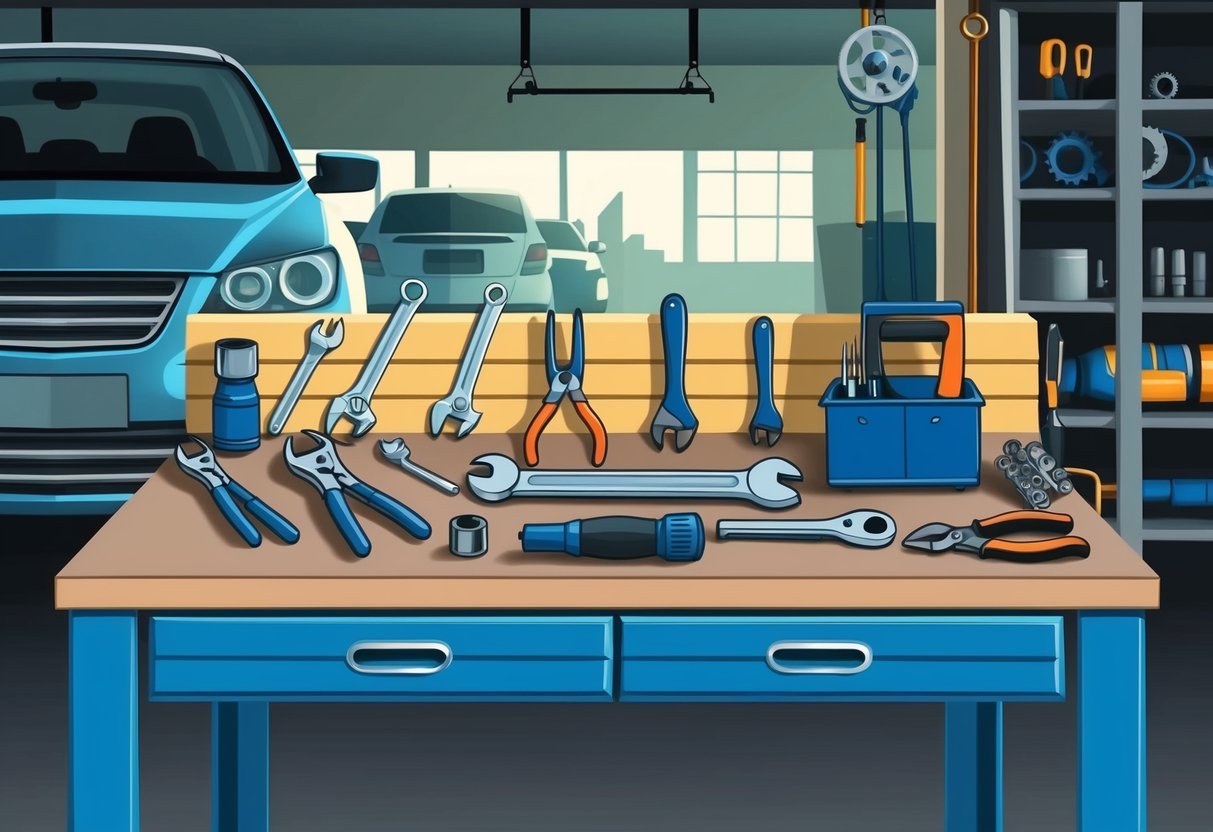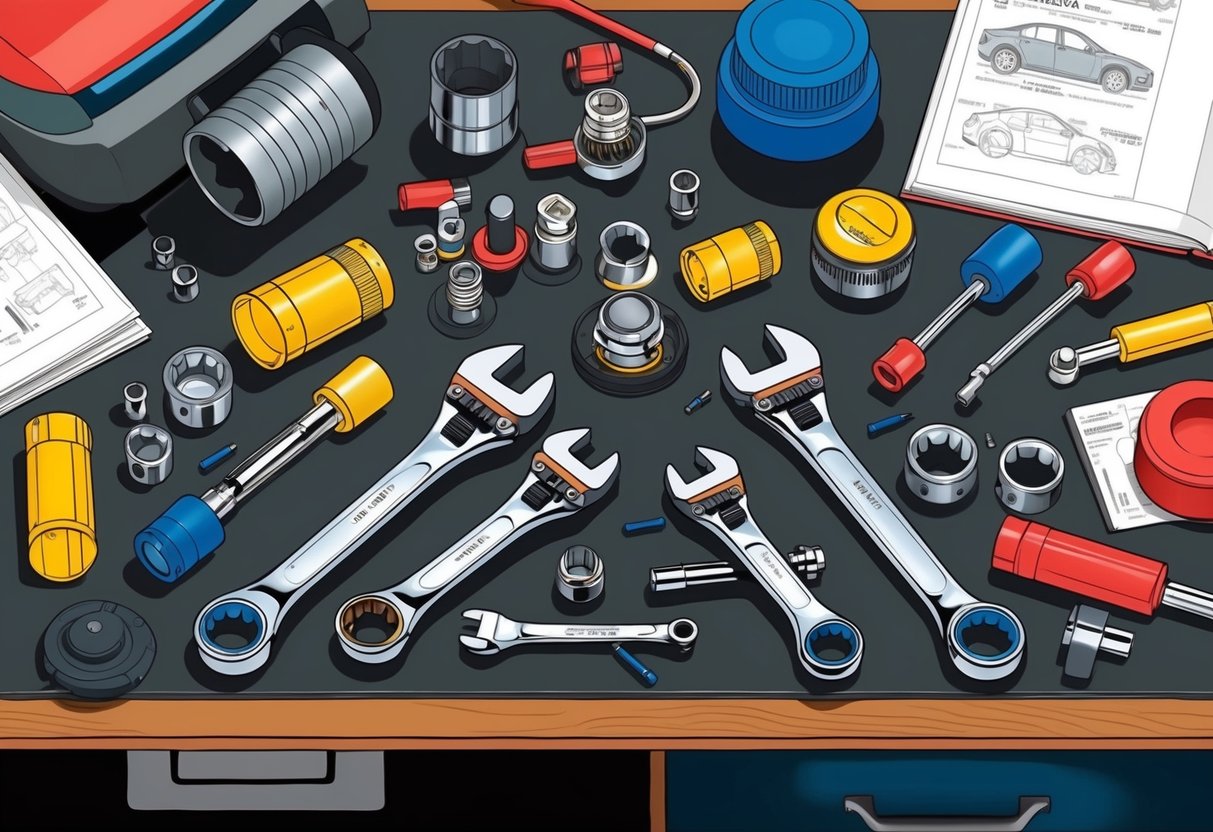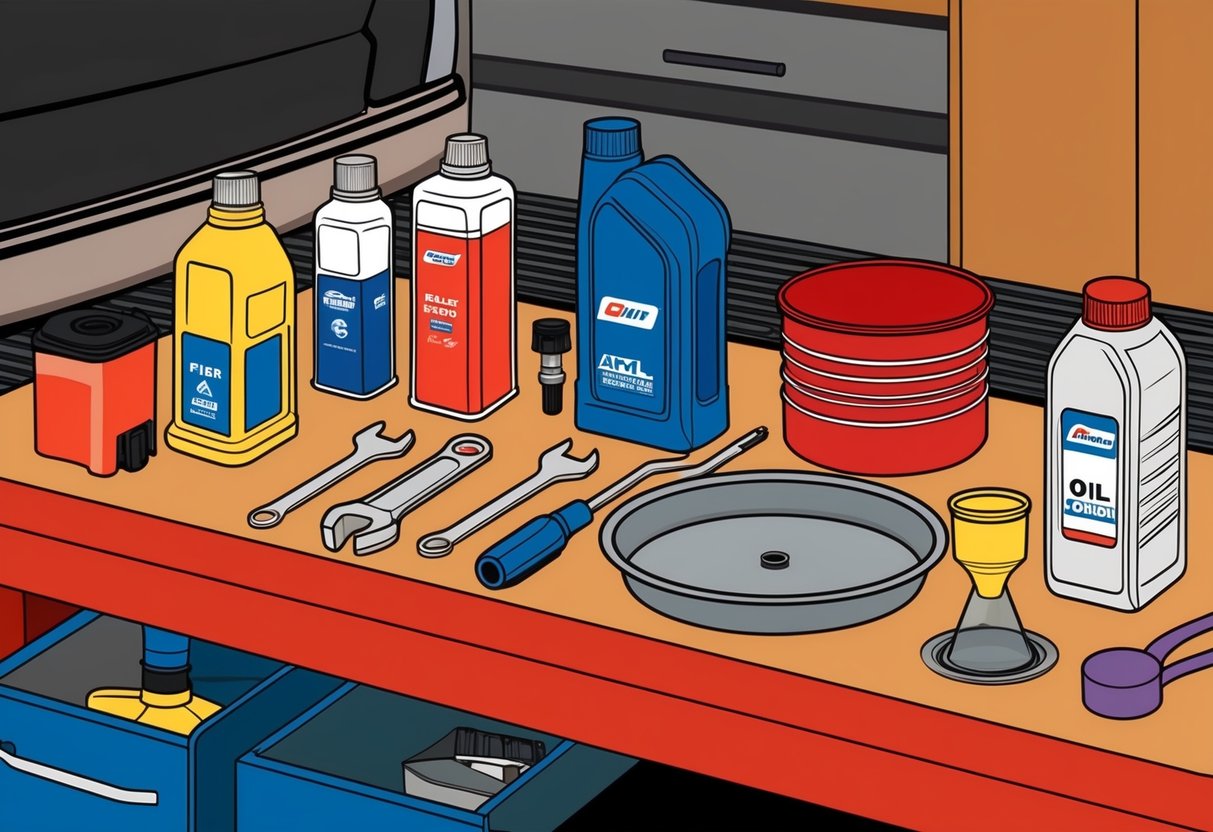
Torque Tools and Measurement Devices

Using the right measurement devices ensures safety and accuracy in DIY car repairs. Properly torquing fasteners and diagnosing electrical issues both rely on having the correct tools at hand.
Torque Wrenches
A torque wrench is essential for tightening bolts and nuts to the manufacturer’s specifications. Over-tightening or under-tightening can cause component damage or result in hazardous driving conditions.
The most common types are click, beam, and digital torque wrenches. Digital models often feature multiple measurement scales, preset settings, and alerts that signal when the correct torque is reached, making them user-friendly for beginners.
A GearWrench torque wrench provides a 3° ratcheting arc, ideal for tight spaces and precise work. Always consult shop manuals for torque values to match the specific requirements of your vehicle.
Torque wrenches come in both metric and imperial units. Keeping both socket sets available ensures compatibility with a wide range of vehicles.
After each use, reset the wrench to its lowest setting to maintain calibration and prolong its lifespan.
Multimeters
A multimeter measures electrical values such as voltage, current, and resistance. For car repairs, this tool is necessary for diagnosing battery issues, testing alternators, or checking fuses and sensors.
Most modern vehicles use complex electrical systems, so having a reliable digital multimeter is crucial. Multimeters help identify blown fuses, faulty wiring, or parasitic drains.
Beginners should look for models with an easy-to-read digital display, automatic range selection, and safety features like overload protection. When using a multimeter, always start with the highest range setting before narrowing down to the expected value.
Reference the vehicle’s shop manual to locate wiring diagrams and proper test points, reducing the risk of accidental short circuits.
Automotive Fluids and Management Tools

Proper handling of fluids is crucial for DIY automotive work. The right tools help manage oil changes and coolant maintenance safely and efficiently.
Oil Drain Pans
An oil drain pan is a fundamental tool for any oil change or routine maintenance. It is designed to catch used engine oil as it drains from the oil pan, preventing spills and keeping the work area clean.
Many oil drain pans include a pour spout, making it easier to transfer waste oil into a recycling container. Some models also have built-in handles and tight-fitting lids for transport and storage.
Using an oil filter wrench in combination with an oil drain pan can make the process smoother. The wrench helps remove stubborn filters, minimizing hand contact with hot or used engine oil.
Always select a pan with a capacity larger than the engine’s oil volume, as this prevents overflow. Regular cleaning of the pan helps reduce contamination and ensures accurate fluid management.
For a complete list of essential mechanic equipment, including fluid management tools, visit this guide to mechanic tool lists.
Antifreeze Testers
An antifreeze tester is vital for checking the effectiveness of a vehicle’s coolant. It allows the user to determine the freezing and boiling point protection levels of the coolant mixture by drawing a small sample from the radiator or reservoir.
Most testers use a floating ball or calibrated scale to display levels quickly. Regular testing of antifreeze ensures that the engine is protected from both freezing and overheating.
Antifreeze that is too weak may leave parts unprotected in extreme temperatures, while an overly strong mixture can lead to reduced heat dissipation. When selecting a tester, choose one that is compatible with the vehicle’s type of coolant.
Routine use, especially before the seasons change, helps avoid costly damage and keeps the vehicle’s cooling system running smoothly. For tips on coolant testing and basic car repairs, check out this essential automotive tool guide.
Power Tools for DIY Car Repair
A few key power tools make tasks like loosening bolts, cutting metal, and safely disassembling components much faster and easier. These tools also help prevent wasted time and stripped fasteners in the garage.
Impact Drivers
Impact drivers deliver high torque in short bursts, making them ideal for loosening stubborn or rusted bolts without damaging fastener heads. Unlike standard drills, these tools use a combination of rotational force and concussive blows to break bolts free.
Most mechanics prefer battery-powered models for portability and convenience. For car repairs, a 1/4-inch, 3/8-inch, or 1/2-inch impact driver offers the versatility to tackle wheel lug nuts, engine fasteners, and chassis components.
Brands offer features like variable speed triggers and brushless motors for increased control and tool life. Having an impact driver is often recommended as one of the most essential tools for DIY car work.
Some impact drivers are bundled in kits with extra batteries or charger options, which help maximize efficiency. Investing in a reliable, well-reviewed model saves frustration when dealing with tough jobs.
Angle Grinders
Angle grinders, sometimes just called grinders, are indispensable for cutting, grinding, and cleaning metal parts. In DIY car repair, they are commonly used to remove rust, cut exhaust pipes, or smooth out welds and rough edges.
Most models support a range of attachments including cutting discs, flap wheels, and wire brushes. Safety is key when using an angle grinder: goggles, gloves, and long sleeves protect against flying debris or sparks.
Select a grinder with a comfortable grip and adjustable guard for better handling and safety. A standard 4.5-inch angle grinder balances power and control for most automotive tasks.
Corded versions provide continuous performance for extended projects, while cordless models offer flexibility around the garage.
Impact Sockets
Impact sockets are specially designed to handle the high torque from impact drivers and wrenches without cracking or deforming. Made from tougher materials and usually finished in black oxide, these sockets resist rounding off corners of stubborn fasteners.
This durability is especially important when working on suspension, brakes, or drivetrain components where bolts may be seized or overtightened. A quality set of impact sockets usually includes sizes from 8mm to 24mm in both shallow and deep variants.
These provide coverage for most common car repairs. For extra value, some sets include accessories like universal joints or adapters to tackle hard-to-reach bolts.
Compatibility with both metric and SAE fasteners is crucial. Mechanics should look for impact sockets with clear markings for quick identification during fast-paced jobs.
It is important never to use regular chrome sockets with an impact tool, as they can shatter under stress.